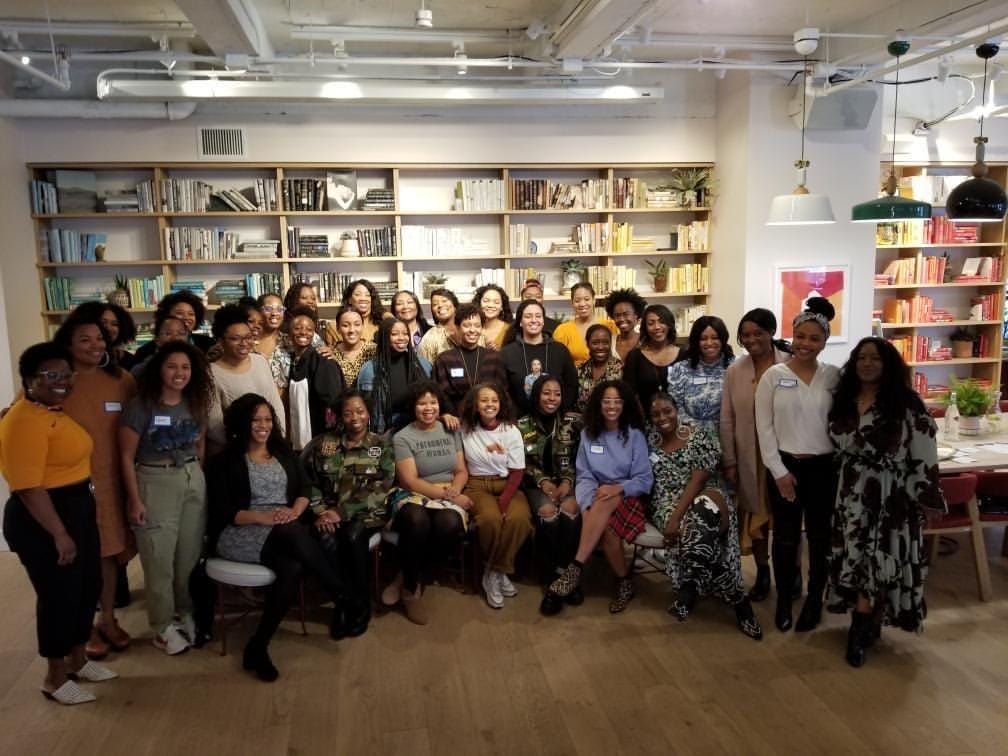Issue #4: Finding Belonging in Exclusion
Looking for the silver lining

The opposite of belonging is not loneliness; it is exclusion.
This Sunday, I co-hosted a beautiful brunch with Mimo Haile, one of the co-founders of Coco Coalition. We brought together a group of roughly 40 Black women to connect with each other and explore the meaning of belonging in various domains of our lives.
This brunch was an expansion of the quarterly breakfast series I kicked off last year. I started hosting these breakfasts to provide a safe space from Black women to see and be seen by folks who know what it’s like to walk in your shoes. So many Black women in the Bay Area feel excluded whether at work or in the dating scene and are excluded more broadly in American society. This brunch elevated last year’s experiences at the breakfasts by allowing women to connect at a deeper level through facilitated conversations.
The conversational questions included:
Black women have learned to be solution-oriented and resourceful, often ‘making a way out of no way,’ how do you think this affects our professional growth positively and negatively?
What helps you feel grounded and connected to your body?
How does purpose or belonging to a higher power influence your life?
Where are the spaces where you can just be? How do you define and protect these spaces?

One question stuck out in particular: "If they don't give you a seat at the table, bring a folding chair." What does this mean to you?
That quote from Shirley Chisholm sparked a lot of comments about the embedded assumptions of the call to action. Some said that they didn’t want to settle for a folding chair; they want a real seat with true influence and co-equal power. Others commented on the metaphor of the table itself, citing that the tables that require folding chairs were built by and for white men. They rejected the negative assessment of self-worth that comes from being judged for not belonging and called for building new tables that were meant for Black women.
The conversation made me think of ways in which non-belonging or exclusion can be a source of innovation or solidarity. Here are a few signals that may indicate more positive futures of exclusion.
What: Eunique Jones Gibson created the game Culture Tags to blend community and culture in recognition of memes used by Black Twitter that consisted of long acronyms of phrases that typically only Black players know and could understand. (Source)
Implications: Creating shared rituals through experiences like games help to reinforce a sense of belonging, connection and safety in groups by leveraging exclusion from majority culture as an asset. As our world grows more connected, paradoxically it becomes more important to preserve and reinforce cultures that are not part of the majority to feel rooted to history, a key component of belonging, and combat the erasure of assimilation and cultural appropriation.
What: Salon dug into ring shaming, a phenomenon where women willingly come together to shame each other over terrible engagement rings in the Facebook group “That's it, I'm ring shaming” with nearly 80,000 members. (Source)
Implications: The curious juxtaposition of enjoyable shaming allows people to navigate cognitive dissonance in the company of others. While shame typically contributes to isolation, digital communities like these facilitate social norm violations by amplifying the voices of those who challenge those norms. This can be neutral as in ring shaming groups or positive with groups that allow LGBTQ teens to connect with each other online when they don’t have supportive families or communities. It can also be negative; for example, anti-vaccination groups thrive online because they are able to share fears and amplify dangers, giving doubters a place to feel comforted and included. In the future, this may drive virtuous cycles of people seeking clout through the violation of social norms.
What: CEO and founder Naj Austin launched Ethel’s Club, the first-ever private social and wellness club for people of color in Brooklyn in 2019. (Source)
Implications: Austin sees cultural value in Ethel’s Club beyond the physical space:
We are positioning the company as a cultural anchor and intentional wellness space that centers POC life and experiences.
Part of the reason for Ethel’s Club was a physical response to the displacement of Black residents in Brooklyn due to gentrification. Place is a major component of belonging historically; ironically it may grow in significance as more and more populations move and relocate more frequently. As the nature of work changes with more remote work, a fissured workforce and the continued growth of freelancing, spaces like Ethel’s Club will be vital for excluded minorities who already have a hard time finding opportunities in the job market. Third spaces like this club also allow excluded populations to both relax from the strain of striving to move and operate in a social context where they do not belong and make connections that generate wealth and social capital.
What: Media outlet Inverse estimates that China will overtake the United States in basic science spend in this decade, especially with forces like the ongoing trade war, national security suspicions and global pandemic fears fuels the split. (Source)
Implications: Complex disciplines like the basic sciences require collaboration like a plant requires sunlight. With the growth of silos in lucrative areas like artificial intelligence, both countries stand to lose by doubling down on greater exclusion. Declining collaboration could imperil global competitiveness for the United States while accelerating China’s ascendance. The US’s loss could also be the gain of other innovative countries open to collaborate with China, highlighting that exclusion is not a zero-sum game at the institutional level.
